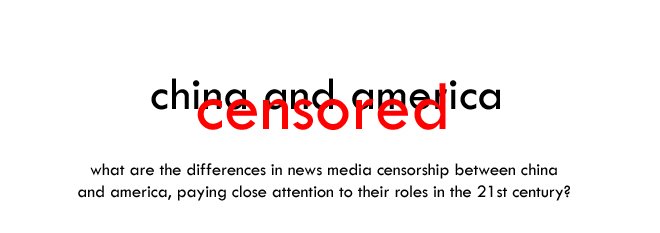After the recent 7.9-magnitude earthquake in central China this month, I decided to pay close attention to the Chinese government's response to this tragedy, considering the Communist Party's reaction to another event that brought the country worldwide attention not too long ago: SARS. I began searching for news articles and columns, looking for a detailed description of how the CCP was currently reacting to the aftermath in Sichuan Province. I found what I was looking for in this article published by The National Post, a Canadian news source.
Peter Goodspeed, the author of the article, notes that
Just two years ago, Chinese officials drew up a draft of a new Emergency Response Law that would have given local governments the right to "manage news media reports" about emergencies. The proposed legislation recommended fines of US $12,000 for unauthorized reports on natural disasters, accidents, public health incidents and public disturbances that could be deemed misleading or harmful to China's harmonious social order.However, because of the enormous number of casualties, which continues to grow today, and the long road towards recovery that lies ahead, Goodspeed adds:
Chinese officials finally seemed to have recognized that being open and honest could win them public support...that could change abruptly the moment there is a shift in the news that might damage the image of the Communist party. But for now, China is experiencing a brief breath of journalistic freedom.Some of that "journalistic freedom" Goodspeed is referring to may be the home videos and security camera footage of the earthquake that can be found online. The video above, filmed in a dormintory by a Chinese student at Sichuan University, posted on YouTube.com, was the opening clip for the first report of the earthquake that aired on my local news station here in Chicago. As mentioned in my post on China's response to the Tibetan protests in March, international news is now relying on the internet and new forms of communication for information.
On a final note, I believe there is a connection to the cyclone disaster that struck Myanmar several weeks prior to the earthquake in China; the isolationist junta's response caused an uproar globally. With the Olympics looming and the damage from the earthquake so widespread, China's image clearly lay in the hands of the government in the hours following the quake.
I look forward to your thoughts and comments.
